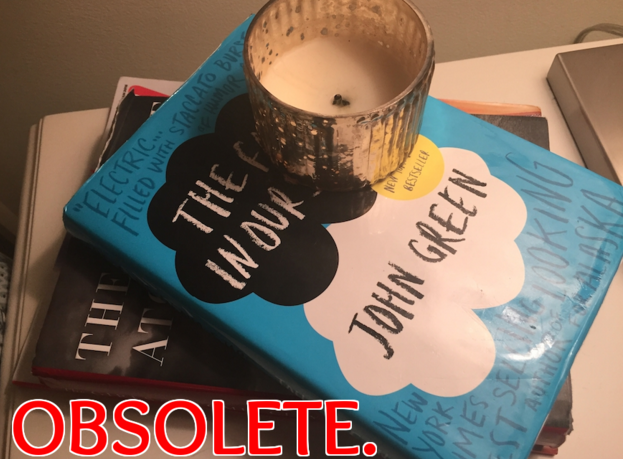It’s a sin to kill a book worm
We are taught from the day we enter elementary school that reading is a fundamental tool for all students. It is a nonnegotiable statement. Reading simply helps us flourish.
Being a high school student, I can quote a variety of appreciated speeches by Sherman Alexie about the transitive benefits of reading, or Ralph Waldo Emerson’s inquiries on the nurturing effects of literature on humans. However, I can’t remember the last time in high school I read a book of my choice.
Obviously high school is the time to engage students in essential classic novels such as A Tale of Two Cities or The Odyssey to further benefit their analyzation skills with complex texts.
However, when I look at my bookshelf filled with novels that I haven’t picked up since 8th grade, I have trouble remembering the last time I actually read a book for leisurely purposes.
The truth of the matter is that the majority of Staples students simply don’t have the time to flip open a John Green novel on any given Tuesday of the school year. Students have club meetings to get to, sports events to attend and copious amounts of coffee to drink to get their AP work done.
So, if we are always drilling in the idea that “reading helps flourish,” I’m curious as to why it is an accepted fact at Staples that leisurely reading has basically become obsolete.
I would equate this epidemic of non-leisurely-readers (including myself) to a variety of distractions in our culture. First and foremost, since we are living in a technology era, we are in constant reliance on our smartphones for feedback from our friends, or even games that act as time vacuums without us even knowing it. Forget bedtime stories, now we have snapchat stories to watch, Instagram feeds to pour over and politicians’ tweets to mock. According to a recent study done at Pew Research Center, 94 percent of teens go online on their mobile devices at least once a day or more, and 71 percent of teens use more than one social network site.
I can’t say that I’m going to be the next mover and shaker of technology culture in America, because at this point we are in too deep– because let’s face it, we love our Instas.
However, if there is one thing true about the grade-obsessed culture of Staples students, we would read books of our choice if we were assigned to do so. Therefore, if students start to read books of their own choice for a grade in school, they might rekindle their relationship with leisurely reading.
I never thought I would ask my teachers for more work, but please, to all future English teachers: make us read, but this time let us choose.
By the wise words of Atticus Finch, it’s a sin to kill a mockingbird, and I believe that it is also a sin to kill a book worm.

Not only does Izzy Ullmann ’17 spend long hours after school with the Inklings staff, but she also is a well rounded person with a variety of interests,...


















































